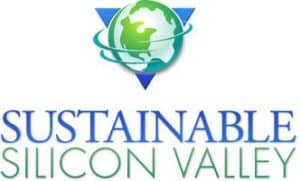How We Developed a Business Model Focused on Reuse,Recycling and Security
How We Developed a Business Model Focused on Reuse,Recycling and Security
This case study was used by Sustainable Silicon Valley in their “Eco Cloud Call for Solutions”Competition.

Sometimes the simplest sustainability solutions are right t in front of us and the easiest to do. Although not as exciting as a new technology innovation solution, our solution requires simple adjustments in behavior that can have a huge sustainability impact.
The rapid acceleration of technology of “must-have” new electronic product introductions has created a society of accelerated obsolescence. Many electronic products are disposed of as waste disposal when they have substantial repair and reuse potential before their life is over.
Additionally, e-waste contributes up to 70% of the toxic substances harmful to humans and in landfills like mercury, cadmium, arsenic, PCB, and lead. UpcyclIT® provides an alternative to waste and recycling. Recycling destroys working or non-working assets into raw materials that may or may not be reused, whereas “upcycling” provides for reuse options.
It extends a product’s useful life cycle and as explained below, is far more economically and environmentally friendly. Our natural resources are preserved, and pollution is limited. This is the proper sustainability solution.
Statement of Problem
The rapid technology acceleration of so many new electronic product introductions has encouraged accelerated obsolescence of electronics with detrimental planetary implications. For example, a single TV has as many as 5000 toxic components. If not properly reused or disposed of, hazardous toxins will leach into landfills and the environment. Electronic waste disposal is the fastest-growing waste stream worldwide.
Globally, over 50 million tons of e-waste are produced annually; 5 million tons of e-waste are disposed of in the U.S. alone, but less than 14% is recycled. An electronic product is often disposed of as waste well before its lifespan is over. 60-80% of U.S. e-waste or recycling ends up being shipped overseas to developing countries like China, India, and Vietnam which can process e-waste at up to 10 times cheaper than in the United States.
With few regulations, dismantling and processing happen with rudimentary tools and little inhalation protection for fumes from toxic substances which are harmful and even deadly to those that work with them. The creation of a cottage industry of crude recyclers in these “e-waste cities” takes advantage of many children who have to live and work in these “cities”. Workers are paid about $6/day to process and breathe hazardous substances and fumes for 10-12 hrs/day. Increasingly, we have become a throwaway society.
Gone are the days that so many of our parents grew up in where tough times like depression or war necessities breed innovation and reuse. For example, when milk bottles were sanitized and reused again and again. Now we recycle, grinding down bottles and cans every time we use them requiring excessive amounts of energy, resources, pollution, time, and money to remake that same product. Like the challenges in our parent’s era, our planetary challenges like global warming, economics, health, and depleted resources are just as tough. True sustainability requires reusing “upcycling” options.
Summary of Solutions
We need to learn from historical times. Historically, one man’s depleted and depreciated assets (trash) was another man’s treasure. For example, building materials were not disposed of; they were recycled and more often than not reused or “upcycled”. Great structures like churches in Europe were built on the foundations of existing architecture, reusing the materials from the older structures they replaced.
Unfortunately, in modern times surplus electronics were and are often disposed of as trash. In 2003, California became one of the first states to not only encourage but to fund recycling with a consumer fee on many electronic products purchased. The effort was well-guided and provided a monetary incentive for manufacturers and consumers to recycle.
Many local collectors like Surplus Service and others were established to collect e-waste and efficiently process it. Although consumers and manufacturers pay these recycling fees, the biggest bounty goes to recycling companies. From the fees California and other states collect, recyclers are paid by the pound for every electronic item they recycle; working or not, they grind it down into raw materials like glass, plastic, and metal. Although more viable than prior alternatives, recycling is not the most economically or environmentally efficient solution. Fortunately, their efforts have created a positive enlightenment of public and corporate behavior around recycling, green, sustainability, and eco-friendly alternative benefits.
The recycling stream uses a lot of energy. Reuse assets are not being recycled, therefore there are huge energy savings with reuse. Reuse provides less chance of the e-waste toxins being shipped overseas with healthier implications. Also, since the electronic asset is continuing to be used, there is no energy, resources, pollution, and raw materials needed to manufacture replacement products.
Manufacturing new products for products that still have a useful life uses substantial energy, raw materials, resources, and shipping. Alternatively, the savings from expanding reuse and the secondary market would have a huge planetary sustainability impact. Additionally, taxes and fees are saved since consumers in states like California don’t have to pay a recycling purchase or disposal fee.
Lastly, diverting these assets to businesses, organizations, and individuals that can utilize them, financially and environmentally benefits both parties. The secondary market is filled with tier 2, 3, or four companies, small businesses, and individuals who can benefit and expand their operations with reused “upcycled” electronics.
We need to learn from our past and take this to the next level by “upcycling”. Reuse options are still the best and most preferred options. They are generally easy behavioral adjustments. Recycling is a viable choice that we should continue but only as an end-of-life option. At some point, legislative initiatives should encourage regulatory efforts around reuse.
Currently, there are many local and national companies like Surplus Service that have developed a business model focused firstly on reuse, repair, refurbishment, and parts. Additionally, many of these reuse companies also provide recycling options for disposing of electronics but only at a true end-of-life point.
Why This Solution is the Best
Our solution should be selected since history teaches us and proves that proper reuse management of resources is one of the most basic and simplest options for environmental and economic impact. Companies like Surplus Service have developed a business model that focuses on reusing depleted electronics in the secondary market while keeping assets out of landfills.
Recycling is used but only as an end-of-life option. We “upcycle” collected electronics in a holistic closed loop manner for repair, refurbishment, parts, and reuse as a more economically and environmentally friendly alternative to recycling and landfills. We maintain client documentation to limit transboundary shipments and help manage downstream disposition and deployment of merchandise. We’re proud that about 85% of our assets are reused; only 15% are recycled, and close to 0% of our e-waste ends up in landfills or is shipped overseas. We have reused millions of untold pounds of electronics saving them from recycling and landfills and have recycled minimally a few million pounds of waste.
The trend towards making reuse “cool” needs to be enhanced and accelerated. Interestingly, the biggest challenge for reuse companies is not selling reuse. There is a huge multibillion-dollar secondary market for reuse. The biggest challenge is obtaining the electronics source from both users and producers.
Historically government and corporate funding and initiatives have focused largely on making recycling initiatives “cool”.
Marketing and public opinion need to be encouraged around reuse. Surprisingly, currently, there are few if any regulations, ordinances, or incentives around reuse. The Recycling Waste Reduction Commission (RWRC) and Technical Advisory Committee (TAC) should be encouraged to recommend upgrading regulations and incentives around reuse by allocating some of the fees from recycling to incentivize reuse. This leadership could encourage a simple behavioral change that would have a huge bang for minimal bucks.
As a green, certified small business, all of Surplus Service’s revenues go directly back to supporting employees and companies in our local community. Electronic assets are given a second life. Transforming e-waste into valuable assets is the right thing to do for the environment and the economy since it reduces waste as well as helping organizations grow and expand
Surplus Service is a San Francisco, CA Bay Area-based award-winning e-waste management business that specializes in ITAD, medical recycling, electronic liquidation, reverse logistics and data eradication. As the No. 1 electronic reuse and recycling leader, our goal is to provide eco-friendly solutions that lead to the reuse of electronics rather than just having them recycled or end up in a landfill. To learn more about us, call one of our e-waste recycling specialists at (510) 226-0600 or contact us by email.

